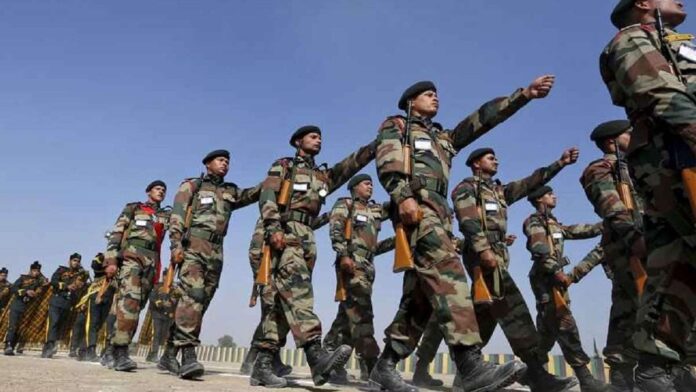The Delhi High Court on Monday said the Centre’s Agnipath scheme falls in the ambit of “public interest” and aspirants cannot claim any right to seek recruitment on account of their participation in processes initiated under notifications issued before the introduction of the new policy.
The recruitment process can be changed by the State midway if it is in public interest, a bench headed by Chief Justice Satish Chandra Sharma said while dismissing a bunch of petitions relating to the recruitment process for the armed forces under certain previous advertisements.
The court rejected the petitioners’ contention that they lost opportunities and suffered on account of the sudden change in policy, and said the government, in this case, cannot be held to be bound by the recruitment process initiated by it.

The objective of the scheme, noted the court, is to reduce the age of forces, which will make it “leaner, agile and will be greatly beneficial for border security” and such objectives cannot be said to be arbitrary, whimsical or mala fide.
“(The court has) reached the unequivocal conclusion that the Impugned Scheme (Agnipath) is not arbitrary, capricious or devoid of reason. On the contrary, it squarely falls within the ambit of public interest’… A recruitment process can be changed by the State midway if the same is in public interest,” said the bench, also comprising Justice Subramonium Prasad.
“It has also been stated that the Impugned Scheme, by reducing the average age of soldiers, will bring our Armed Forces at par with other nations, as the average age of Armed Forces across the world is 26 years.
“The stated objective of the Impugned Scheme is to have a blend of young Jawans, Sailors or Airmen between the age of 18-25 years as Agniveers, supervised by an experienced regular cadre having the age of 26 years. To achieve this goal, the State has also been consistently decreasing the age bracket of officers,” said the court in its 55-page verdict.
The Agnipath scheme, unveiled on June 14, 2022, lays out rules for the recruitment of youth in the armed forces.
According to these rules, those between 17-and-a-half and 21 years of age are eligible to apply and they would be inducted for a four-year tenure. The scheme allows 25 per cent of them to be granted regular service subsequently. After the scheme was unveiled, protests erupted in several states against the scheme.
Later, the government extended the upper age limit to 23 years for recruitment in 2022.
No relief for those named in selection list but did not get appointment letters
Several petitioners, who sought recruitment under the Common Entrance Examination (CEE) and a 2019 notification for the Indian Army and Air Force, respectively, had approached the high court with a grievance the recruitment processes for several posts were halted at the “fag end” and subsequently cancelled on account of the introduction of Agnipath scheme, which effectively nullified their recruitment.
The petitioners argued that under the erstwhile process, they have already been shortlisted and were included in the provisional list but appointment Letters were not issued to them.
The court said that it is well settled that individuals who were merely waiting to be issued appointment letters cannot claim to have a right to gain employment.
“There was no vested right in claiming appointment even after a selected list has been declared, and secondly on account of the larger public interest weighing strongly in favour of the Agnipath Scheme.
“The petitioners have no vested right to seek such recruitment, and secondly, that promissory estoppel and legitimate expectation find themselves severely restricted by the overarching concerns of public interest,” said the court.
“Due to this, this court finds that the Petitioners have no vested right to claim that the recruitment under the 2019 Notification and CEE Examination needs to be completed.
“Furthermore, both promissory estoppel and legitimate expectation cannot be applied in the instant case to force the Government to complete the recruitment keeping in mind larger public interest,” it added.
Navy continued recruitment through old process in ‘national interest’: HC
The court also observed that it did not find any force in the petitioners’ stand that if the Indian Navy could continue recruitment under the earlier notifications, so could the Indian Army and the Indian Air Force.
The court noted that the recruitment process for the Indian Navy continued in national interest keeping in mind the manpower shortage.
Recruitment rallies are ‘fast-track’ method, different from regular process: HC
The court also refused to accept the petitioners’ stand that they should be treated at par with those individuals who were recruited through rallies.
“With respect to the Indian Army, the rally recruitment was undertaken to increase intake of the people from tribal and hilly areas in the Armed Forces so as to maintain a demographic balance, rallies were conducted at various locations in the country to recruit young people in the Armed Forces,” the court said.
“The method of recruitment of soldiers by way of written examination and the method of recruitment of soldiers by way of rallies are different and the time taken in both the processes is also different;
“While the rallies are a fast-track method of recruitment, the regular mode of recruitment was multi-pronged, and took longer, especially during the pandemic.
“By the time the normal recruitment process in the Army was concluded, the government had already taken the policy decision to bring in the new Agnipath Scheme,” stated the court.







